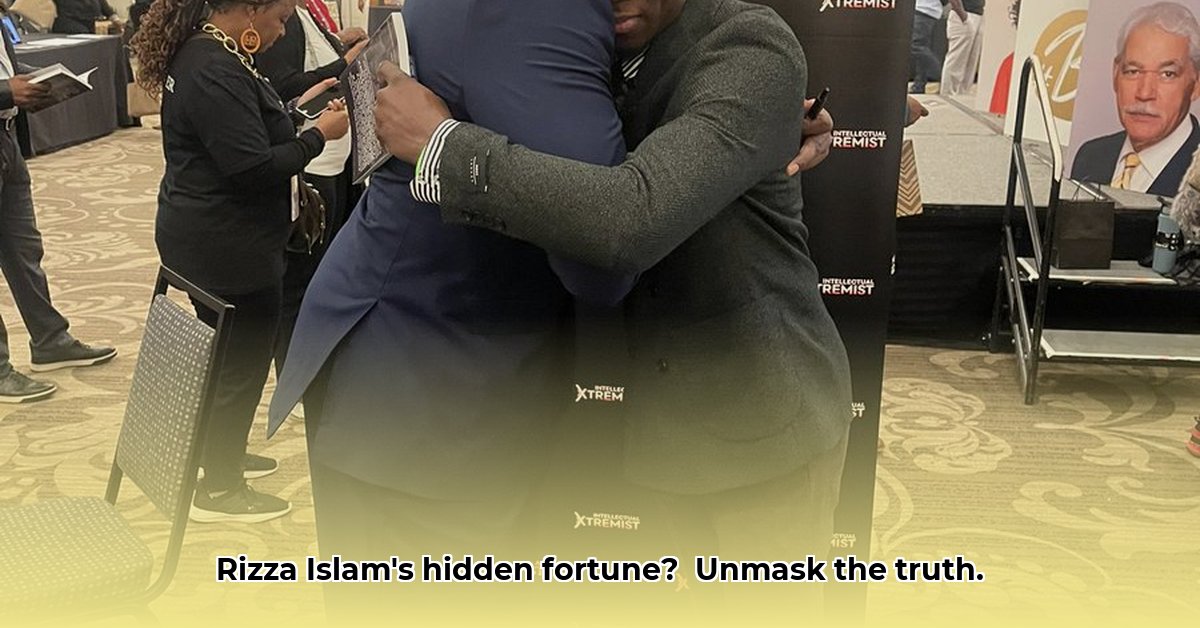
Rizza Islam's online presence is substantial, garnering significant attention despite efforts by social media platforms to curb his reach. While his net worth might pique curiosity, a deeper understanding of his impact necessitates examining his methods of disseminating misinformation and the far-reaching consequences. This article explores the broader picture, focusing on the dangerous content he shares and the challenges in combating online falsehoods.
The Dissemination of Misinformation: A Closer Look at Islam's Tactics
Islam's online content is characterized by the consistent promotion of harmful ideas. He frequently propagates anti-Semitic views, hateful rhetoric targeting the LGBTQ+ community, and baseless claims against vaccines. His success is partly attributed to his skillful use of conspiracy theories, often exploiting anxieties and beliefs within specific groups. Experts widely consider him a key figure in the online disinformation ecosystem. This isn't merely isolated incidents; it's a sustained campaign designed to mislead and sow discord. How can we effectively counter such sophisticated disinformation campaigns?
Social Media's Response: A Complex Challenge
Social media companies have attempted to mitigate Islam's influence through account removals and content restrictions. However, challenges abound. The persistence of information online makes complete erasure difficult. The effectiveness of these measures remains debatable, leading to ongoing discussions about balancing free expression with the need to protect society from demonstrably harmful falsehoods. What is the optimal balance between free speech and the protection of society from harmful misinformation?
Understanding Islam's Audience: Why His Message Resonates
To effectively combat Islam's influence, understanding his audience is paramount. Analyzing demographics and motivations is crucial for developing targeted countermeasures. Why do his messages resonate with certain communities? What vulnerabilities are being exploited? Answering these questions provides insight into the problem's roots and facilitates the development of more effective counter-narratives. Research into these areas is ongoing.
The Impact of Misinformation: Real-World Consequences
The consequences of Islam's actions extend beyond individual posts; his misinformation erodes trust in institutions, fuels harmful narratives, and potentially contributes to real-world harm within targeted communities. While quantifying this damage is complex, his considerable reach suggests a significant negative impact. Researchers are actively exploring methodologies to better measure and understand this harm.
Countering the Narrative: Strategies and Challenges
Combating misinformation is a multi-pronged challenge. Strategies include creating effective counter-narratives, developing community-based initiatives, and enhancing media literacy programs. However, their effectiveness remains a subject of ongoing research and debate. How can we improve these initiatives to effectively combat the tide of misinformation? The collaborative effort of multiple stakeholders will be key.
Rizza Islam's Net Worth: A Peripheral Issue
While Islam's financial status could offer insight into potential motives, it's secondary to the damage he inflicts. If verifiable evidence emerges linking financial gain to the spread of misinformation, it would provide context. However, his net worth should not overshadow the primary concern: the detrimental impact of his disinformation.
The Path Forward: Collaboration for a Safer Online Environment
The case of Rizza Islam highlights the pressing challenges posed by online misinformation. Addressing this issue requires a collaborative approach involving stronger legislation, greater platform accountability, and robust community-based solutions. It's a persistent battle demanding sustained effort. Collaboration between policymakers, technology companies, researchers, and community leaders is crucial for developing effective strategies. Ongoing research and adaptation of strategies will be vital in this evolving fight against disinformation.